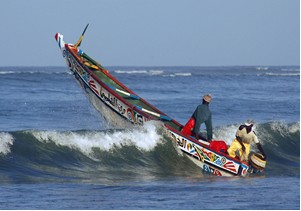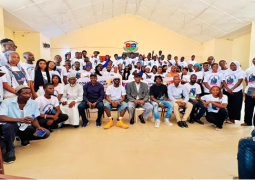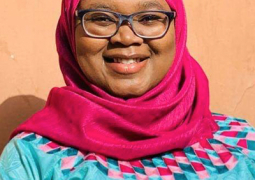
Gambian youth are increasingly entering the fisheries sector by utilising fishing as a viable means to eke out a living to improve their conditions and the economy of the country.
Challenges such as limited government support, high equipment costs and competition from foreign trawlers persist.
The government has initiatives to support them, such as providing fishing boats and training, but there is a call for more investment in technology and infrastructure to make the sector more lucrative and sustainable for the youth.
Employment: The government has reported employing thousands of Gambian youth in roles like desk hands and observers within the industrial fishing sector.
Incentives: Initiatives such as providing artisanal fishing boats aim to support youth and women in the sector and discourage illegal migration.
Training: The Ministry of Fisheries has provided boats for communities and training for new fishermen.
Aquaculture: There are projects aimed at developing aquaculture, which could unlock new employment opportunities.
Limited support: Youth report inadequate government support, including a lack of credit facilities and essential incentives like supplies and policies.
High costs: The cost of equipment, such as fuel and industrial boats, is a significant barrier for many.
Foreign competition: The fishing industry is dominated by foreigners, which creates a competitive disadvantage for local fishermen.
Unsustainable practices: The presence of foreign trawlers and practices like "pair trawling" can deplete fish stocks and drive up prices, making it harder for local fishermen to make a living.
Increased investment: There is a strong call for greater investment from the government in technology, infrastructure, and national fishing fleets.
Policy reform: The need for policy changes that prioritize sustainability, national ownership, and local economic empowerment is frequently highlighted.
Technological advancement: Some argue that the country should focus on technological training for its youth instead of just providing basic equipment.
Local processing: Developing local fish processing industries could create more jobs and ensure that profits from the sector benefit Gambians.
In recent years, several initiatives have been launched to encourage youth engagement in the fisheries sector.
Providing equipment: The Ministry of Fisheries has provided boats and other fishing equipment to local fishing communities and youth groups to increase local participation and combat illegal migration.
Training programs: Climate Resilient Fishery Initiative for Livelihood Improvement (PROREFISH Gambia) has implemented training for local communities, including women and youth, focusing on fishing techniques and business management.
Industrial sector employment: As of 2020, the Fisheries Ministry reported that 1,857 Gambian youths were employed as deck hands or observers on industrial vessels, in line with a policy aiming to increase local involvement.
Support for aquaculture: Due to the effects of climate change, the Ministry is encouraging young people to get involved in aquaculture, and has helped establish community ponds to promote fish farming.
Empowering local entrepreneurs: The National Youth Council has highlighted successful young entrepreneurs like Musa Jaiteh, who used a grant to start his own fishing business, as a model for other youth.
Enforce regulations: Authorities must enforce stricter regulations on foreign vessels and illegal fishing to protect local livelihoods.
Increase investment: Policymakers need to increase investment in technology, training, and infrastructure to make the sector more attractive and profitable for young people.
Provide financial support: Access to credit facilities and other financial support is crucial for youths to purchase necessary equipment.
Promote sustainable practices: Government should prioritize sustainable fishing practices and local ownership of resources to ensure the long-term viability of the industry for future generations.





